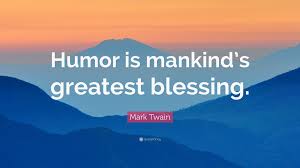On Fidel Castro
I recently questioned how similarly smart, kind, and honorable people could disagree so vehemently on the recent U.S. presidential election. From that same perspective, let's take a look at a few statements from national and international leaders reference the recent death of Fidel Castro.
President Obama attempts to connect with the Cuban people while avoiding a judgment of Castro's reign:
At this time of Fidel Castro's passing, we extend a hand of friendship to the Cuban people. We know that this moment fills Cubans - in Cuba and the U.S. - with powerful emotions, recall the countless ways in which Fidel Castro altered the course of individual lives, families, and of the Cuban nation. History will record and judge the enormous impact of this singular figure on the people and world around him. . . . Today, we offer condolences to Fidel Castro's family, and our thoughts and prayers are with the Cuban people.
President-elect Trump, on the other hand, offers a blunt assessment of Castro as a brutal dictator:
"Today, the world marks the passing of a brutal dictator who oppressed his own people for nearly six decades. Fidel Castro's legacy is one of firing squads, theft, unimaginable suffering, poverty, and the denial of fundamental human rights. While Cuba remains a totalitarian island, it is my hope that today marks a move away from horrors endured for too long, and toward a future [with] freedom they so richly deserve. Though the tragedies, deaths, and pain caused by Fidel Castro cannot be erased, our administration will do all it can to ensure the Cuban people can finally begin their journey toward prosperity and liberty."
Former President Jimmy Carter, on the contrary, expresses fondness towards Castro:
Rosalynn and I share our sympathies with the Castro family and the Cuban people on the death of Fidel Castro. We remember fondly our visits with him in Cuba and his love of his country. We wish the Cuban citizens peace and prosperity in the years ahead.
Taking an apparent affection towards Castro even further, Canadian Prime Minister Justin Trudeau places Castro on a pedestal as an exceptional leader:
It is with deep sorry that I learned today of the death of Cuba's longest serving President. Fidel Castro was a larger than life leader who served his people for almost half a century. A legendary revolutionary and orator, Mr. Castro made significant improvements to the education and healthcare of his island nation. . . . I know my father was very proud to call him a friend and I had the opportunity to meet Fidel when my father passed away. . . . We . . . mourn the loss of this remarkable leader."
Finally, possessing family roots in Cuba, Senators Ted Cruz and Marco Rubia weigh in with condemnation towards Castro:
[Cruz] Fidel Castro's death cannot bring back his thousands of victims, nor can it bring comfort to their families. Today we remember them and honor the brave souls who fought the lonely fight against the brutal Communist dictatorship he imposed on Cuba.
[Rubio] His communist regime turned [Cuba] into an impoverished island prison. Over six decades, millions were forced to flee their own country, and those accused of opposing the regime were routinely jailed and even killed. . . . History will remember [Castro] as an evil, murderous dictator who inflicted misery and suffering on his own people.
Who is the real Fidel Castro?
What triggers such significant departures on one's attitude towards Castro? Is the difference of opinion simply the case of partisans seeing Castro through biased lenses, much like loyal Redskins-Cowboys fans would disagree on a pass interference call or ardent Yankees-Red Sox fans disagreeing on a called strike three? Is it a simple case of each individual's facts being influenced by either ideologies or choices of news and other information sources? Or is some other dynamic at play when trying to understand such diametrically opposed views towards such a controversial figure as Fidel Castro?
What say you?
For additional information on this topic, please click on the hyperlinked bullet points below:
Castro and Khrushchev
- I highly recommend reading Soviet Union leader Nikita Khrushchev's letter to Castro outlining rationale for not following Castro's advice to launch a first-strike nuclear attack on the U.S. A fascinating read, really.
- The Washington Post publishes a short biography of Castro's life as a revolutionary and socialist/communist icon. Slate does the same.
- This website, www.therealcuba.com, provides details on the 56 years of oppression under Castro.
“History will remember [Castro] as an evil, murderous dictator who inflicted misery and suffering on his own people.”






